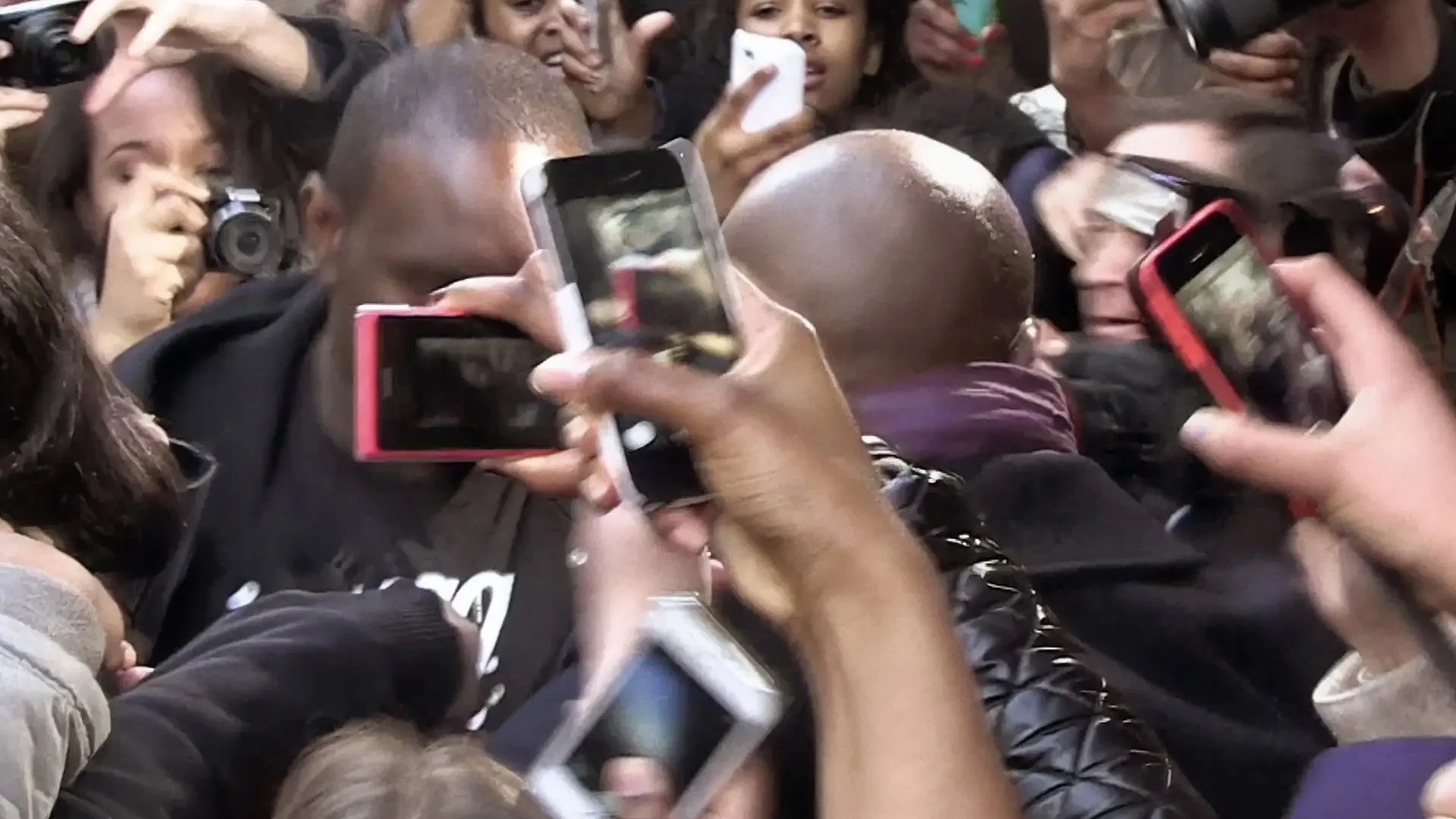Fantastic Machine
The impact of filmed images on our lives yields a lively but shallow survey.
The strangeness of this documentary stems from the amount of material that has been crammed into a single feature film. Its chief focus is on the history of photographic images of human beings as they have changed over the years. Consequently, it ranges from the camera obscura to all the forms that now dominate in our own digital age. That's quite a subject in itself even without adding such issues as the element of fakery that can be involved and it could have been the basis of a long television series. But here we find the filmmakers Axel Danielson and Maximilien Van Aertryck seeking to encompass the full range of it in the space of a single film lasting less than an hour and a half. The result is admittedly interesting and often thought-provoking, but at the same time the piece is so fast paced and so much on the surface that it feels distinctly superficial.
Danielson and Van Aertryck (the former Swedish and the latter a blend of French, German and Swedish), first met at film school and have been making films together since 2016. This new piece has won them awards at festivals in Berlin, Sundance and Seattle and was originally entitled And the King Said, What a Fantastic Machine. That was a reference to the response of Edward VII when viewing a film version of his coronation that had been staged and shot in France by Georges Méliès thereby already illustrating the fact that apparent authenticity can be misleading. That was in 1902 but this documentary goes back even further to an image from a camera obscura in 1828 and then to the first photograph of a human being that would appear ten years later. In keeping with that, Fantastic Machine largely gives the impression of following through in chronological order. But that is not always the case and at one point there is footage of shootings in America in 2009 that is followed by material from 1978 and then from 1969. The film is also ready to incorporate borrowed non-documentary footage to illustrate history. Thus, when it comes to the arrival of moving images, we get the celebrated scene from the 1951 film The Magic Box in which the inventor William Friese-Greene played by Robert Donat shows images taken in Hyde Park to a bewildered policeman, a role taken by Sir Laurence Olivier. However, The Magic Box remains unidentified here.
The filmmakers are not afraid to touch on deeply disturbing subject matter at times. In this respect they reference Leni Riefenstahl’s documentary Triumph of the Will made as propaganda for Hitler and include the director’s 1993 interview trying to excuse it. Then, at the opposite pole, we have the filmed record of what was found in the concentration camp of Bergen-Belsen consciously shot to prove the reality of the atrocities committed. In this case the filmmaker Sidney Bernstein and the editor Peter Tanner comment briefly but, like virtually all of Fantastic Machine, this is archive footage and only the film’s own narration spoken by Van Aertryck brings in any modern voice. Political propaganda of modern times is also included when we see the making of a video by Isis in 2017, but the film’s approach rules out any discussion to provide perspective or deeper consideration.
Elsewhere in the film screen fakery takes on a tone that can become comic as in the TV scenes of Eurovision which reveal that speakers seemingly seen situated in their own national countries were all shot against green screen. One finds too that the claim of TV being wonderful is sent up when that assertion is immediately followed by banal ads. In addition, the film is patently critical of viewers who, succumbing to TV as the latest craze, chose to watch anything and everything from their sofa night by night. That same tone is apparent when it comes to the present-day absorption in YouTube and TikTok and to videos of accidents that go viral providing an easy laugh at someone's expense. Similarly, those who run commercial TV channels or platforms such as Netflix are seen in a questioning light due to their policy of seeking profits by backing popular escapism over more serious subject-matter.
However, all these bits and pieces remain just that rather than fusing together in a meaningful way. The increasing presence of footage that involves disinformation is a subject in itself and, while it is not irrelevant to touch on the amount of role-playing involved on the part of figures who become famous on TV, to add comments about how many viewers themselves echo that by choosing to play roles in their own lives opens up yet another area and one not so readily relevant. And that is indeed the impression left by Fantastic Machine: it's a film that brings up a range of issues but continually hurries on to something else without ever getting down to examining them in a truly insightful and invigorating way.
MANSEL STIMPSON
Featuring the voice of Maximilien Van Aertryck as narrator.
Dir Axel Danielson and Maximilien Van Aertryck, Pro Axel Danielson and Maximilien Van Aertryck, Written by Axel Danielson and Maximalien Van Aertryck, Ed Mikel Lee Karlsson.
Plattform Produktion/Bullitt Film/Film i Väst/Sveriges Television (SVT)-Picturehouse Entertainment.
88 mins. Sweden/Denmark. 2023. US Rel: 13 October 2023. UK Rel: 19 April 2024. Cert. 15.


